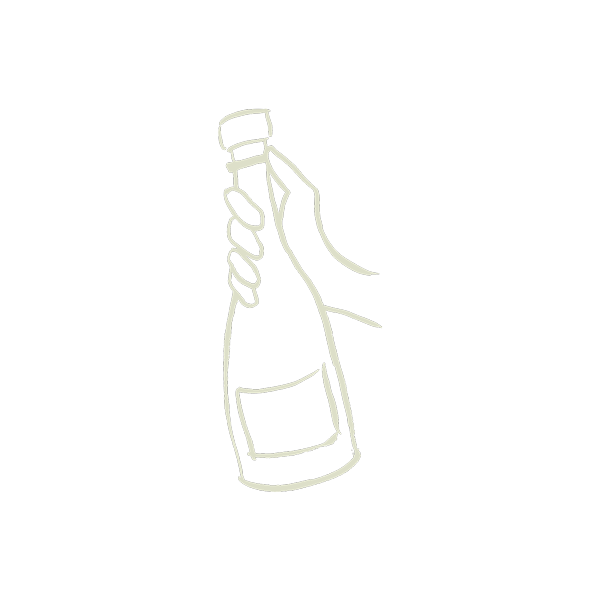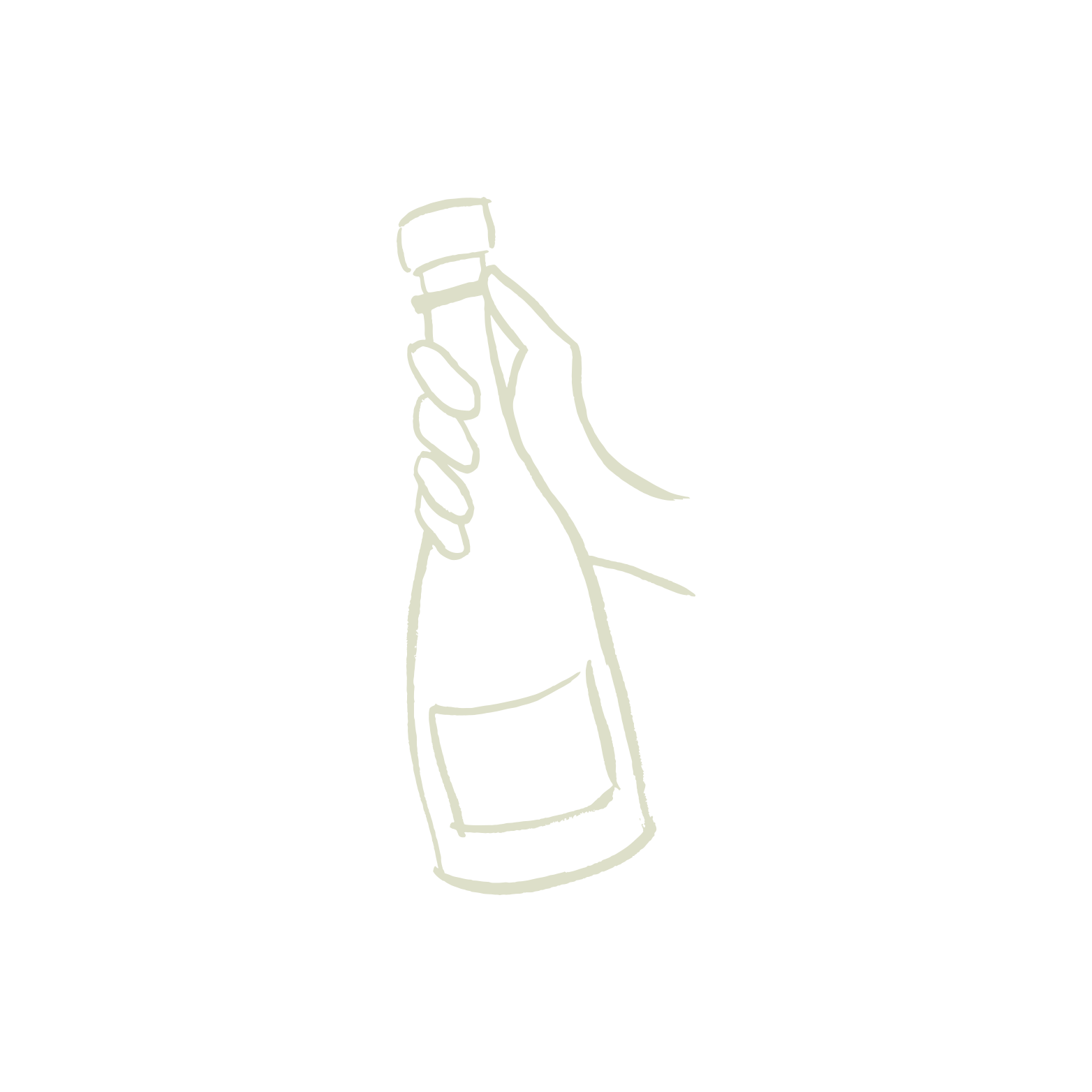The Legacy of Grower Champagne

Pictured above, Hugo, Pascal, and Adrien Redon
With the world’s best bubbles hanging in the balance, Champagne producers prefer to keep the business of grower Champagne in the family, grooming sons and daughters from an early age and passing both their land and their secrets of the craft from generation to generation. When a new vigneron takes over the family estate, they must find the just-right balance of tradition and originality. While respecting the wisdom and skill of those who came before them, they must also find a way to integrate modern business tools, respond to evolving environmental considerations and master the art of experimentation, all of which will eventually lead to their own signature style. This spring club allocation leans heavily on family businesses that have found exquisite harmony in honoring the past and keeping their portfolio future-focused and fresh.
Adrien Redon & Pascal Redon
Since 1982, the Redon family has been growing some of the world’s best chardonnay from their perfectly chalky Premier Cru vineyards in Trépail, a sunny, south-facing village in Montagne de Reims. In the early 2000s, second-generation winemakers Pascal and Pascale Redon handed down the family business to their eldest son, Adrien.
As vigneron, Adrien cultivates his estate’s vineyards and oversees every step of the harvest and winemaking process for two distinct Champagne collections. He honors the classic Champagnemaking style of his father with Pascal Redon cuvées while also crafting exceptional wine that reflects a more modern style for his own namesake line, Adrien Redon.
Adrien may be at the winemaking helm these days, but Redon Champagne is a family affair. Adrien’s brother Hugo is a constant presence on the estate, helping Adrien throughout the season in the vineyard and during production, and handling Champagne Redon business and sales. Their youngest brother, Valentin, is a master glassblower who spends most of the year in Austria, but he contributes his artwork to special edition bottles and travels back home to help with the harvest. In their retirement, Pascal and Pascale let the brothers run the show, but they’re always ready with advice and support whenever it’s needed.

Here’s what you can expect from the Redon family of Champagnes:
Pascal Redon embraces brightness while offering the ultimate balance of flavors: rich, bold, mineral and fresh. It’s delicious on its own, and according to our founder Bryan, it’s a better alternative to that big house Champagne with the famous orange label. (You know the one.)
Adrien Redon cuvées are what we consider “visionary.” Made from the same grapes that supply Pascal Redon, these wines also espouse brightness but go easy on bold fruit flavors in favor of fresh, piercing acidity and little to no dosage. As Adrien tells it, his wines appeal to more experienced Champagne drinkers who “understand the nuance of a cuvée.”

Pro tip: Enjoy the Adrien Redon Un R d'autrefois Extra Brut with a bite to eat. A spread of charcuterie and cheese will balance the acidity of the bubbles in your glass.
Jean Baillette-Prudhomme
As a young girl, Laureen Baillette spent her summers on her family’s five-hectare estate in Trois-Puits on the slopes of Montagne de Reims. While her friends were catching frogs and skipping stones, Laureen instead did what many vineyard children do during their vacation months. She washed glass bottles, moved pallets and helped her father, Jean, a fourth-generation vigneron, in the fields. So even when Laureen left home to complete her studies, she knew she’d be back someday.
That day came sooner than expected when Jean died rather unexpectedly in 2005, and Laureen returned to take over responsibilities as head vigneron of the family estate. Today, alongside her mother, Marie-France, and her sister, Justine, Laureen continues to produce world-class Champagne using the traditional methods she learned from her father. From picking to pressing to riddling, she has her hands on every step of the process. And when it comes to imbuing her cuvées with their signature elegance and maturity, she follows the Jean Baillette-Prudhomme technique of blending each new vintage with 50 percent réserve wine, which her father began in 2002. Then, the bottles age in cellars carved into the chalk 14 meters below the estate to reveal their exquisite complexity of flavors.

Laureen Baillette named her oak Mersault barrel-aged Memoris Premier Cru after her grandfather Maurice (Memories + Maurice = Memoris). During his tenure as vigneron at Jean Baillette-Prudhomme, he preferred to age his wine in these barrels, passing on his knowledge about their unique qualities to Laureen’s father, who in turn taught it to Laureen. Memoris, she says, is “a powerful and straight wine but also a friendly one just like the men in my family

Picture above: Laureen Baillette
Mathieu-Gandon
Growing up in Champagne surrounded by winemakers, growers and hectares upon hectares of lush vineyards, Séverine (née Gandon) and Fabien Mathieu both dreamed of someday making Champagne with their own name on the label. So when the pair found each other, this lifelong aspiration became a shared endeavor, and together they opened Mathieu-Gandon.
Today, Mathieu-Gandon has grown to encompass vineyards in the village of Baslieux-sous-Châtillon in Vallée de la Marne as well as Grand Cru parcels in Verzy in Montagne de Reims, which Séverine inherited from her grandparents. Together, the vignerons are creating their own traditions that they will, in turn, pass on to their own children. In the vineyards, that means trying out such novel techniques as leaving wide spaces between the vines, stringing trellises above standard height and using natural methods of pest control. Back at their estate, Séverine and Fabien demonstrate their passion for winemaking by crafting clean, precise cuvées by hand while experimenting with different vessels during fermentation.

Pictured above: Fabien Mathieu, fatcork founder Bryan Maletis, Séverine Mathieu

Question: What grower Champagne featured in your spring 2024 allocation has Bryan dubbed “the widow-killer”?
Answer: Pascal Redon Brut Tradition because “it’s like Veuve Clicquot but so much better.” Veuve Clicquot is French for “Widow Clicquot.

